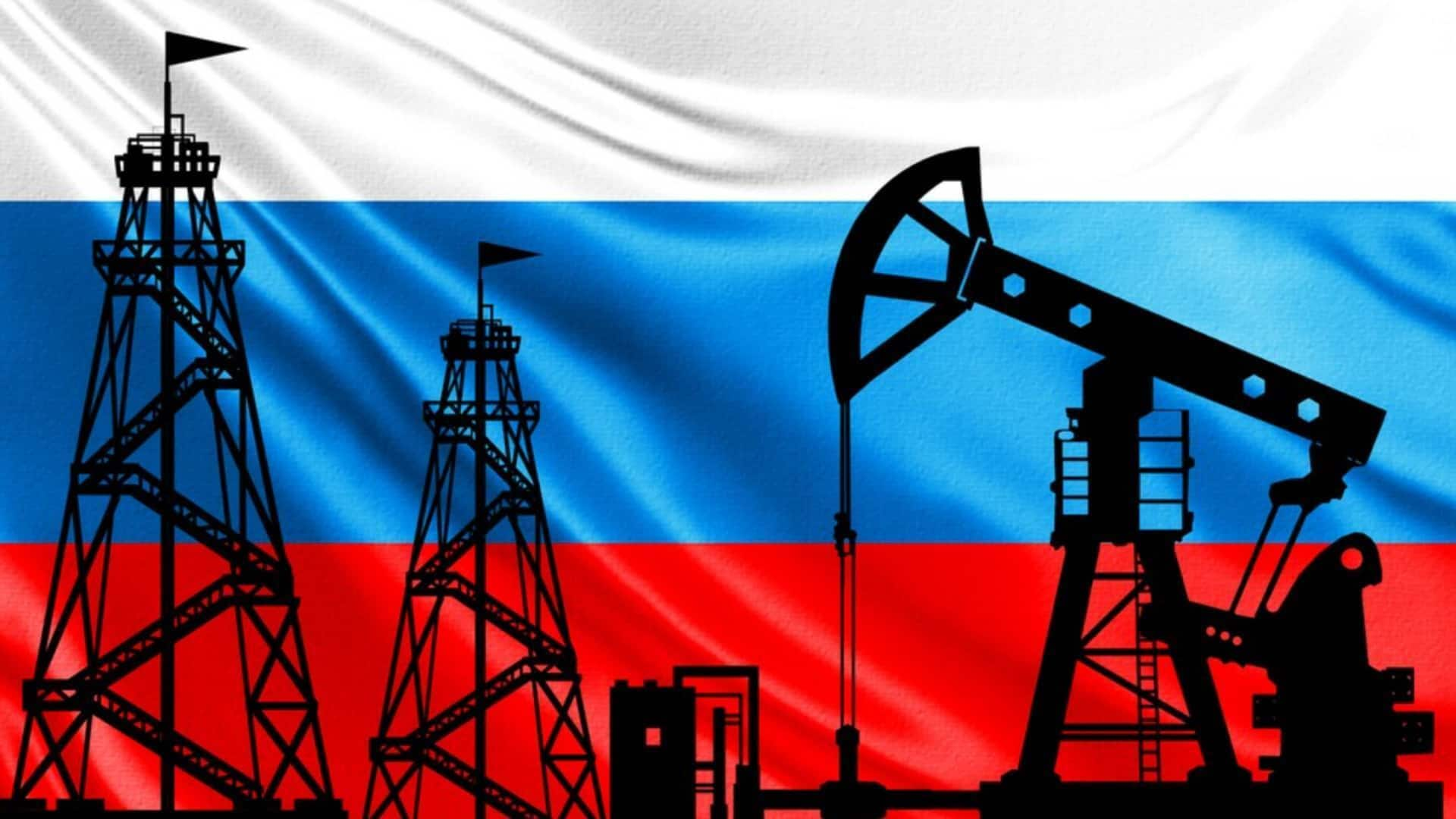
Why 48M barrels of Russian oil is stuck at sea
What's the story
An estimated 48 million barrels of Russian crude oil are stuck in transit due to US sanctions on these supplies. The sanctions, which came into force on Friday, target major Russian oil producers Rosneft and Lukoil. Together, the two companies account for 50-70% of Russia's seaborne crude exports or about 2.2 million barrels per day (bpd).
Trade disruption
Sanctions impact on global oil trade
The sanctions include blocking and freezing US-linked assets of Rosneft and Lukoil, as well as prohibiting transactions with US-linked companies. Global buyers like India and China could face secondary sanctions if they continue to take these cargoes after the wind-down period. According to analytics firm Kpler, nearly 48 million barrels of Rosneft and Lukoil crude are currently loaded, en route or delayed on some 50 tankers.
Price drop
Russian oil prices and potential impact on production
Russian oil prices have plummeted in recent months, with Urals crude trading at a $19-30 discount to Brent crude. Some Urals spot sales are now at $36-47/barrel against $62-65/barrel for Brent. This has drastically reduced Russia's per-barrel revenue. Buyers willing to take the risk are demanding larger discounts due to the sanctions environment. If delays continue, Russia may have to cut production if storage capacity is exceeded.
Market shift
India's reliance on Russian crude and potential shift
Despite cutting some volumes, India remains one of the most exposed buyers of Russian crude. In 2025, India is estimated to have imported 1.7-2 million bpd of Russian oil, accounting for as much as 40% of its total crude imports. However, major refiners such as Indian Oil Corporation have already stopped or canceled December and January purchases from Rosneft and Lukoil due to these sanctions.
Cost response
India's response to rising import costs
As a result of the sanctions, India is turning to Middle Eastern and US suppliers, which has pushed freight rates to five-year highs and increased overall import costs for the country. This shift could increase India's import bill and narrow its refinery margins. If higher costs persist, petrol and diesel prices may rise in India.